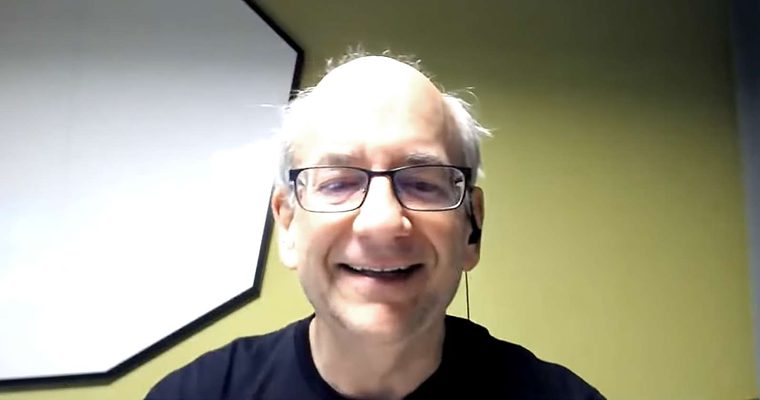
Google’s John Mueller was asked in a Webmaster Hangout what to do if a site is suffering a traffic loss due to Google’s June 2019 broad core algorithm update. John Mueller’s answer provided insights into understanding what is happening.
Then Mueller provided hope that Google may offer further guidance on what to do.
Webmaster Asks If It’s a Content Issue?
The person making the question states they’re a news publisher. They ask that because they deal in content, that it may be that the core update issue for them is content related.
Here is the question:
“We’re a news publisher website, primarily focusing on the business finance vertical. we probably have been impacted by the June Core Update as we’ve seen a drastic traffic drop from the June 1st week.
Agreed that the update specifies that there are no fixes and no major changes that need to be made to lower the impact.
But for a publisher whose core area is content news, doesn’t it signal that it’s probably the content, the quality or the quantity which triggered Google’s algorithm to lower down the quality signal of the content being put up on the website which could have led to a drop of traffic? “
“…it would really help if Google could come out and share some advice to webmasters and websites.
Not site specific, but category or vertical specific at least on how to take corrective measures and actions to mitigate the impact of core updates.
It would go a long way in helping websites who are now clueless as to what impacted them.”

Google’s John Mueller was asked how to recover from a Google broad core algorithm update.
Why Nothing to Fix
John Mueller did not suggest fixing anything specific. He explained that the reason there’s nothing specific to fix is because a core update encompasses a broader range of factors.
Google’s John Mueller explains:
“I think it’s a bit tricky because we’re not focusing on something very specific where we’d say like for example when we rolled out the speed update.
That was something where we could talk about specifically, this is how we’re using mobile speed and this is how it affects your website, therefore you should focus on speed as well.”
Core Update, Relevance and QualityJohn Mueller then discussed the core updates within the context of relevance and quality updates. He did not say that core algo updates were specifically just about relevance or just about quality. He seemed to mention those to aspects as a way to show how these kinds of updates do not have specific fixes.
Here is how John Mueller explained it:
“With a lot of the relevance updates, a lot of the kind of quality updates, the core updates that we make, there is no specific thing where we’d be able to say you did this and you should have done that and therefore we’re showing things differently.”
This is what he said:
“Sometimes the web just evolved. Sometimes what users expect evolves and similarly, sometimes our algorithms are, the way that we try to determine relevance, they evolve as well.”
It follows along with what I’ve been saying, that factors like how Google determines what it means for a page to be relevant to a user can change. Some continue to focus on “quality” issues, fixing things like missing biographies, too much advertising on a page, but that kind of advice ignores relevance issues.
John mentions quality, but he also mentioned how users and the web evolve. That’s not a quality issue. Those are factors that are external to a website that need to be considered.
Nothing to Fix
John Mueller related that there aren’t specific things to fix. But he suggested that it may be useful to understand how users see your site, how useful your site is to users.
Here’s what John Mueller said:
“And with that, like you mentioned, you’ve probably seen the tweets from Search Liaison, there’s often nothing explicit that you can do to kind of change that.
What we do have is an older blog post from Amit Singhal which covers a lot of questions that you can ask yourself, about the quality of your website. That’s something I always recommend going through. , That’s something that I would also go through with people who are not associated with your website.”
In it, the author provides a large number of questions a site owner should ask themselves about their content.
Here is a sample of the kinds of questions Google suggests you should ask yourself:
- “Would you trust the information presented in this article?
- Is this article written by an expert or enthusiast who knows the topic well, or is it more shallow in nature?
- Does the site have duplicate, overlapping, or redundant articles on the same or similar topics with slightly different keyword variations?
- Would you be comfortable giving your credit card information to this site?
- Are the topics driven by genuine interests of readers of the site, or does the site generate content by attempting to guess what might rank well in search engines?
- Does the page provide substantial value when compared to other pages in search results?”
John Mueller then suggested that a third party that is unfamiliar with your site may be able to see issues that are not apparent to you.
What John Mueller said:
“So, often you as a site owner you have an intimate relationship with your website you know exactly that it’s perfect. But someone who is not associated with your website might look at your website and compare it to other websites and say, well, I don’t know if I could really trust your website because it looks outdated or because I don’t know who these people are who are writing about things.
All of these things play a small role and it’s not so much that there’s any technical thing that you can change in your line of HTML or server setting.
It’s more about the overall picture where users nowadays would look at it and say, well I don’t know if this is as relevant as it used to be because these vague things that I might be thinking about.
So that’s where I’d really try to get people who are un-associated with your website to give you feedback on that.”
John Mueller suggested asking in web communities, including the Webmaster Help Forums, to see how others see your site, if they could spot problems.
One issue with that is that every community have specific points of views that sometimes don’t allow them to get past their biases to see what the real problem is. That’s not a criticism but an observation on the nature of opinions is that they tend to vary.
Here’s what he said:
“…you can talk with other people who’ve seen a lot of websites and who can look at your websites and say well, I don’t know the layout looks outdated or the authors are people that nobody knows or you have stock photos images of instead of author photos. It’s like, why do you have that?
All of these things are not explicit elements that our algorithms would be trying to pinpoint but rather things that kind of combine to create a bigger picture.”
That’s good advice. Familiarity does make a person unable to identify what the problems are in a website.